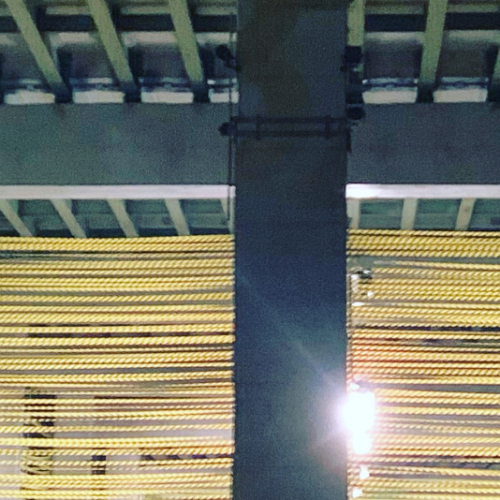I had lost everything, or put an-
Other way, I didn’t believe a thing.
I was an adrift vessel, an at-risk
Young person without a moral compass,
And I’d just pawned my binoculars at
A shop on 14th Street, so I walked down
First Street near First Avenue in early
Morning light of summer, and I happened
Upon Dorothy Day, standing outside
Of the old Catholic Worker storefront,
Assaying the city when she saw me
Coming down the block, head hung in remorse,
Riding the twin horses of shame and guilt,
And she smiled her angelic smile, white hair
Flowing over her shoulders, and she said
Hello and asked me how I was and noted
How beautiful the summer day was, not
Too humid as it had been, nor as hot
As previous hot days were that summer.
“Dorothy,” I said, “how the hell are you?”
And she laughed. My friend Ron lived next door in
A run-down East Village apartment, and
Being homeless, I was going there to
Shower, eat some breakfast, and talk some trash
With Ron and his wife Nicki, maybe say
Hello to the poet Tom Weatherly,
Who was often at the apartment reading
Poems to anyone who would listen.
Poetry was the world to us, so we
Ate and drank it, and embraced it all day
And into the night, and so the last time
I had seen Dorothy Day, I had shown
Her a bunch of my own poems, so now
She was going to tell me what she thought
Of them. But I was not sure, hungover
And sick, hungry and spiritually
Bankrupt, if today was the right time to
Absorb her critique of my poems or
Anything else. I just wanted to get
To Ron’s next to the Catholic Worker,
Have a smoke, drink a beer, listen to Tom
Weatherly read a new poem. I was
Not ready to talk to this white-haired saint
Of the poor and forgotten, the meek and
Humble, the other homeless, and winos
From the Bowery just one block away.
“Michael,” she said, “how are you? Good morning.
I read your poems. Thank you. They remind
Me of Gene O’Neill’s poems.” But I wasn’t
Open to this channel of peace, this living
Being of goodness that summer morning
A lifetime ago, so I made an excuse
To leave and went off to my friend’s old place
Next to the Catholic Worker storefront,
And went up the stinking stairwell to Ron’s
Flat several flights up, where my friends were
Reading aloud from their new poems, eating
Breakfast and yackety-yacking about
The Vietnam War draft, demonstrations
And the revolution only moments
Away. Years later, reading a bio
About Eugene O’Neill, I realized that
Dorothy Day had been his girlfriend before
She had a spiritual awakening,
Got sober and opened the Catholic
Worker, helping the Bowery bums and
Others (myself included), and I have
To laugh now, thinking back on that beloved
Time when poetry was the world, and I
Would run so casually into this saint
On First Street standing in front of her store-
Front, and how angry I had been that day
When she said my poems reminded her
Of her old friend Gene O’Neill. Forgive me,
I pray now, for my enthusiastic
Ignorance and beliefs; how kind you were.
I had lost everything, or put an-
Other way, I didn’t believe a thing.

M.G. Stephens
M. G. Stephens is the author of the novel The Brooklyn Book of the Dead; the travel memoir Lost in Seoul; and the essay collection Green Dreams. His next book, forthcoming from MadHat Press, is entitled History of Theatre or the Glass of Fashion, a series of prose poems and poems about an out of work actor who lands the part of Hamlet.



